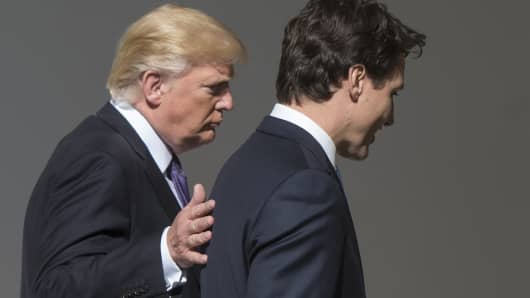President Trump, who threatened to kill NAFTA on the campaign trail, instead recently pulled the trigger on renegotiating the trade pact. That could have massive ramifications for how the U.S. and its neighbors Canada and Mexico conduct business in the future. The move presents a golden opportunity to create the first truly modern trade agenda.
Here's what should take center stage when negotiations begin this summer: The digital economy.
A new NAFTA can set a global precedent that takes into account how much our world has changed in the last 25 years and the outsize role data now plays in business and cross-border trade.
When the North American Free Trade Agreement was concluded in 1994, floppy disks reigned supreme and the Internet was in its infancy. Today, the digital economy (driven by data, software, artificial intelligence, and analytics) spurs growth and jobs in every sector, especially in manufacturing, banking, hospitality, healthcare and education.
Despite this enormous economic impact and increasing global competition, there is no trade agreement in place that has clear, strong, and enforceable rules on data. The decision to modernize NAFTA is the perfect opportunity to create rules that ensure the digital economy can thrive and grow across North America – rules that can be used in all trade agreements to come.
So what would these rules look like?


